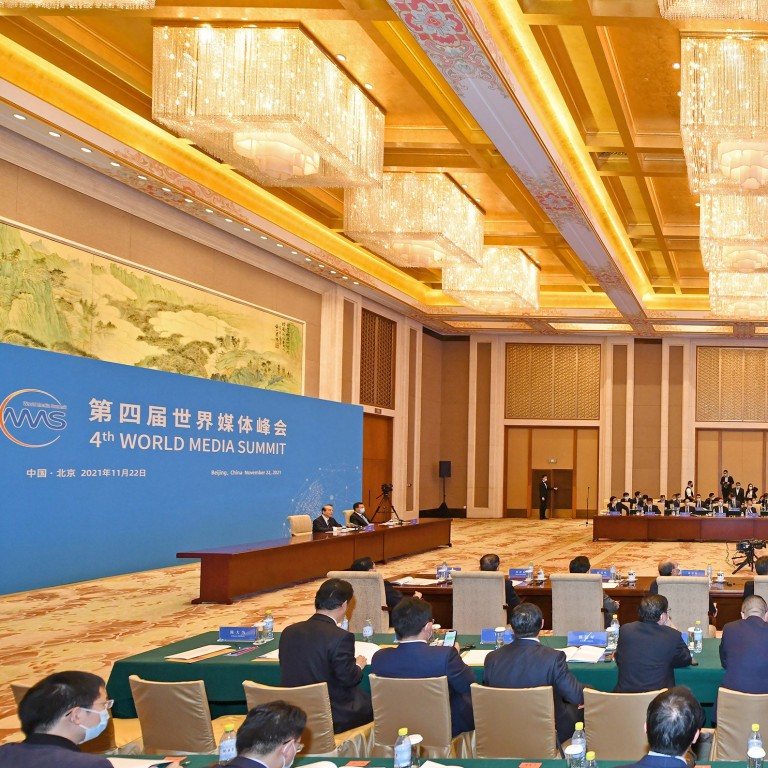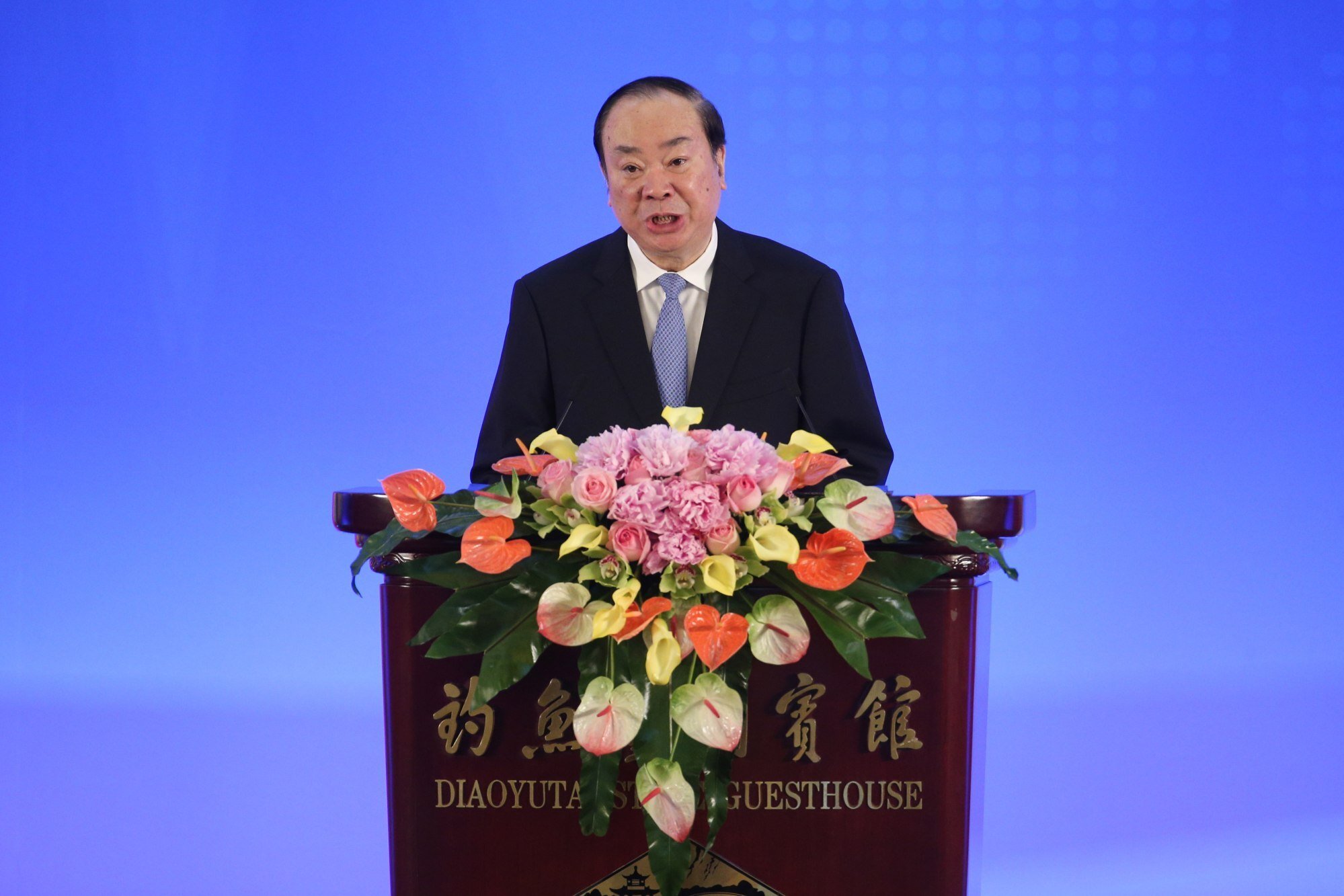
Keep out fake news in age of Covid-19, Chinese propaganda chief urges world media
- Media should use ‘rational judgment’ and be ‘responsible disseminators of public information’ as Covid-19 rages, Huang Kunming tells Xinhua-hosted summit
- Beijing’s charm offensive on media executives would have limited effect, given China’s negative image in much of the Western world, say analysts
“Objective and factual reporting” has become all the more important as the world battles to defeat rampant “rumours and prejudice” during the pandemic, Huang Kunming, a Politburo member and head of the party’s Propaganda Department, told the Fourth World Media Summit in Beijing on Monday.

Media should stick to “science and rational judgment” in their reporting and become “responsible disseminators of public information”, Huang urged the gathered news executives.
“[We should] promote integrity and credibility, sincerity and mutual trust, seek common ground while respecting our differences … and focus on improving the well-being of people of all countries.”
China targets fake news and citizen journalists with new online campaign
Executives from more than 260 media organisations including Reuters, Associated Press, Kyodo, Tass and Agence France-Presse attended the media summit, which was organised by Xinhua.
The Chinese state-run news agency said the summit ended with a joint statement calling on world media to “evolve with the times” and use new technologies to drive “transformation and development”.
Analysts, however, said Beijing’s charm offensive on media executives would have limited effect.
“While this is an external propaganda event, it also serves internal propaganda purposes.
Negative views continue to dominate China’s global image, survey finds
Chen Daoyin, a political commentator and former professor at Shanghai University of Political Science and Law, said it would be very difficult for China to gain the upper hand in wrestling with the world media in the short term.
“China now faces pressure from Western countries on all fronts, especially in the publicity area, but it is difficult for its top-down and cumbersome propaganda machinery to cope with it, not to mention mounting a counter strike,” Chen said.
“But China is spending money and devoting resources to events like this, because it has to start somewhere.”

